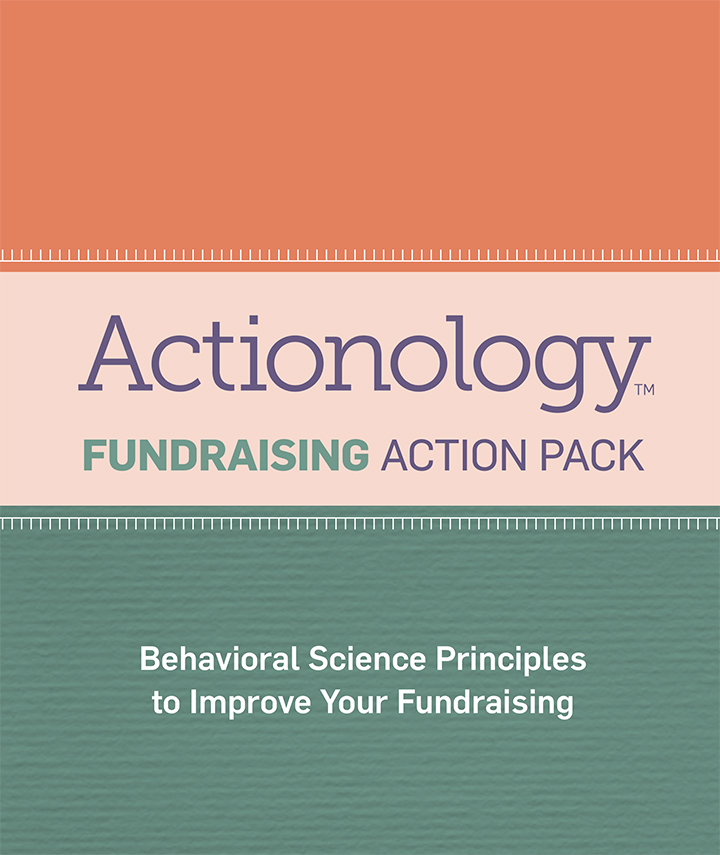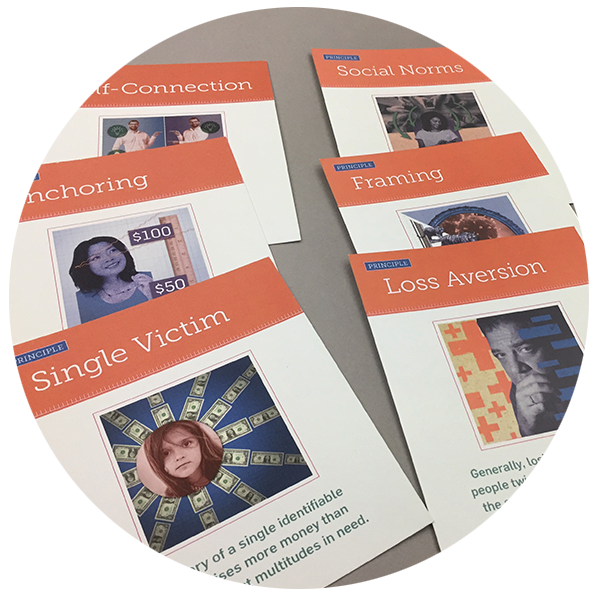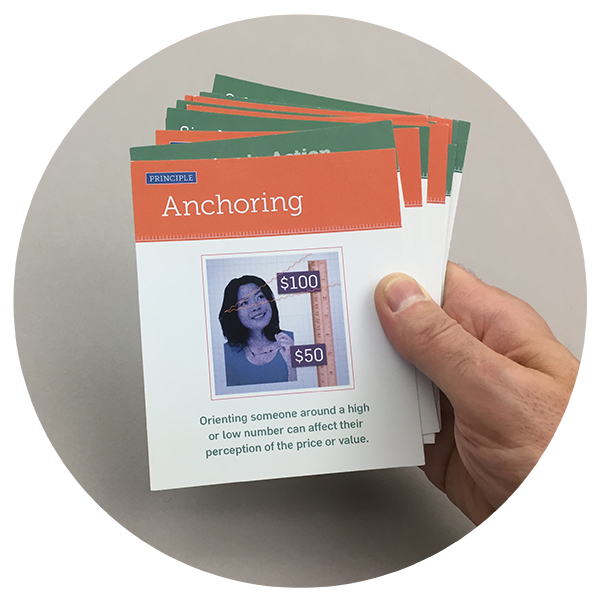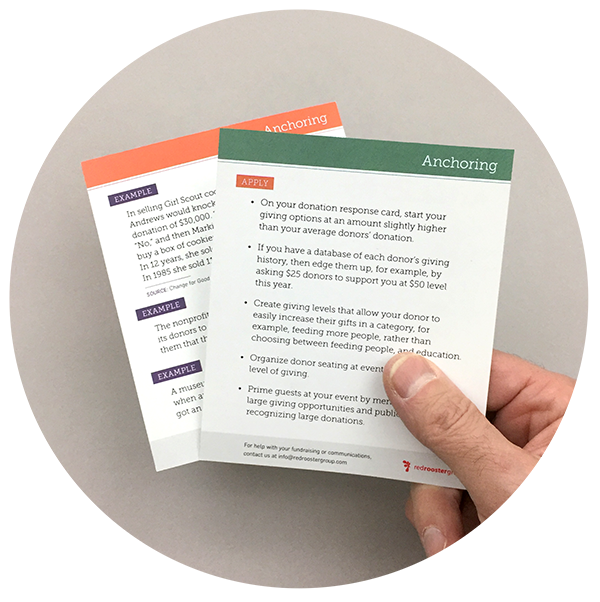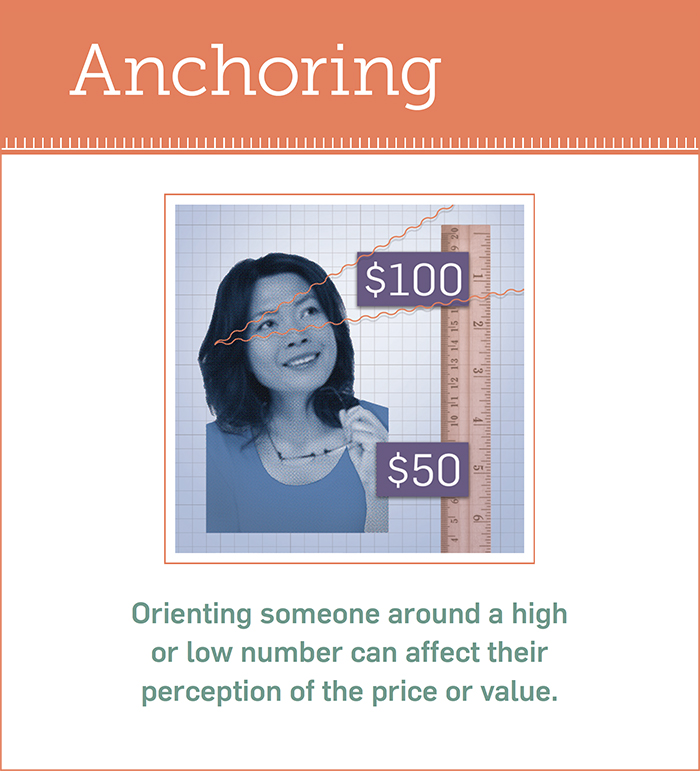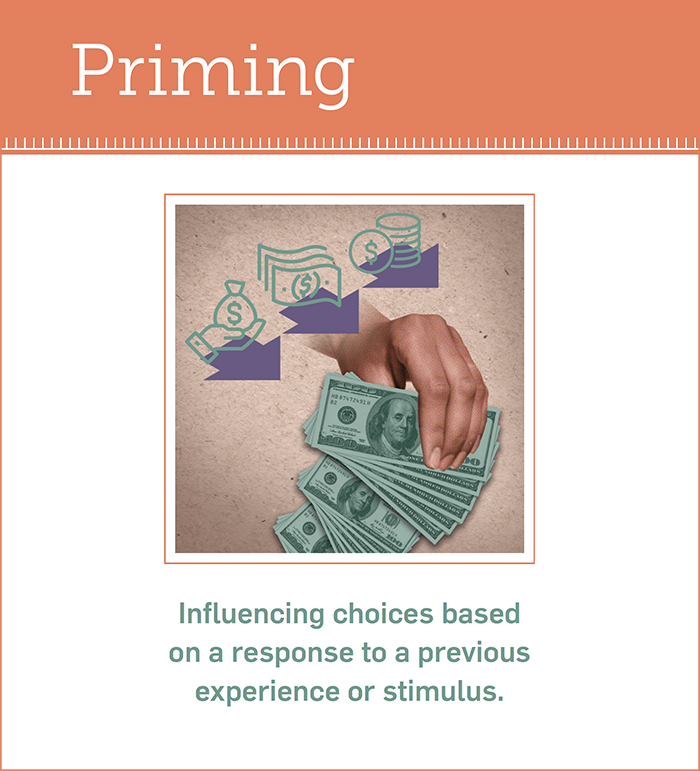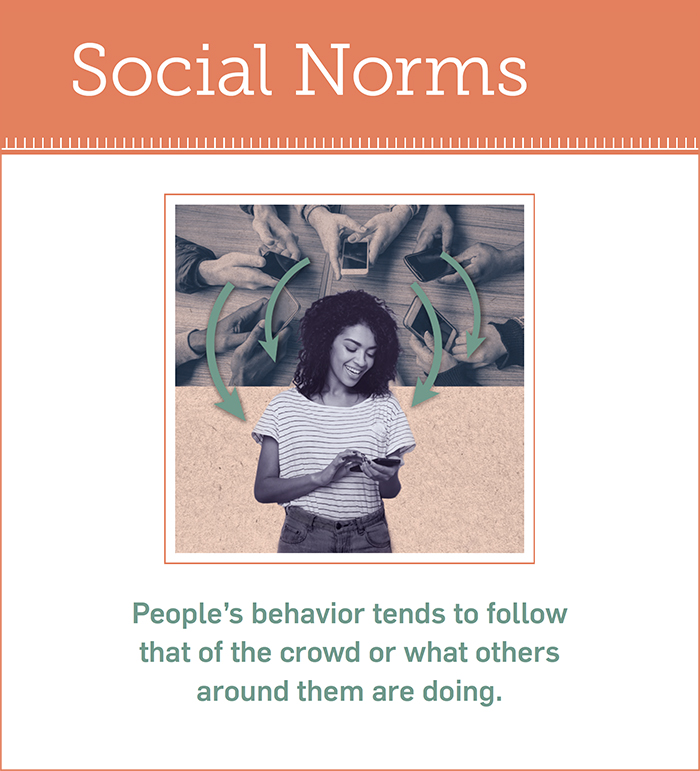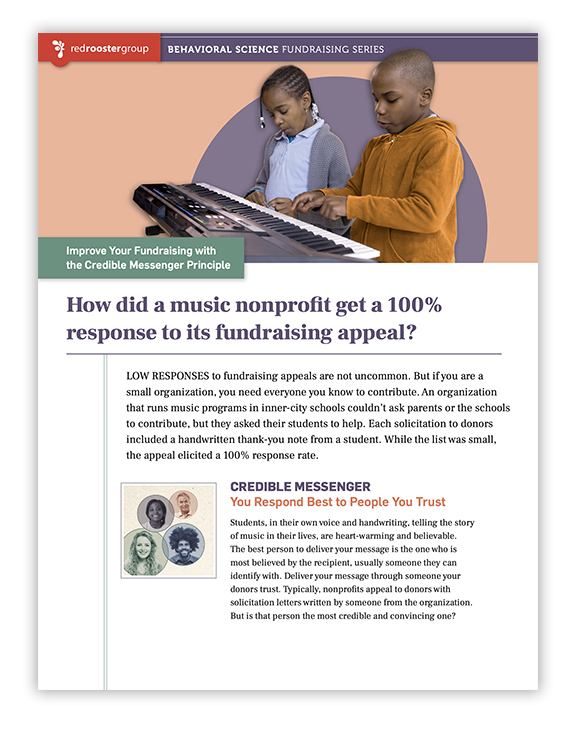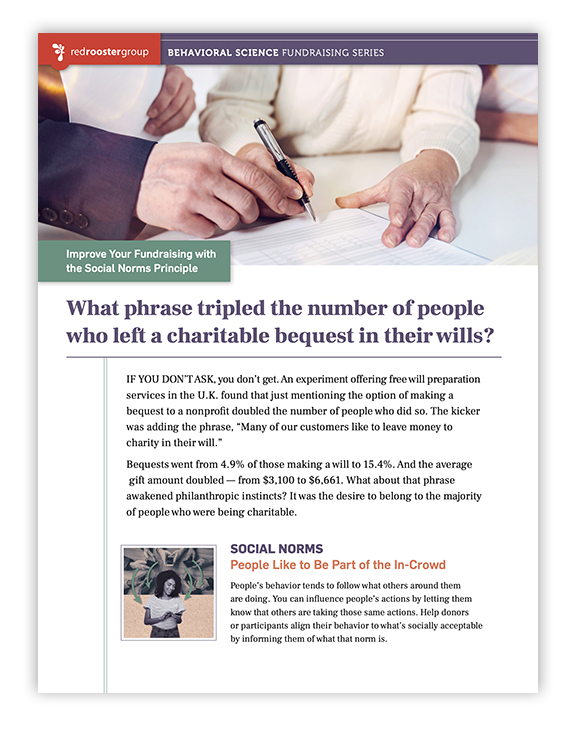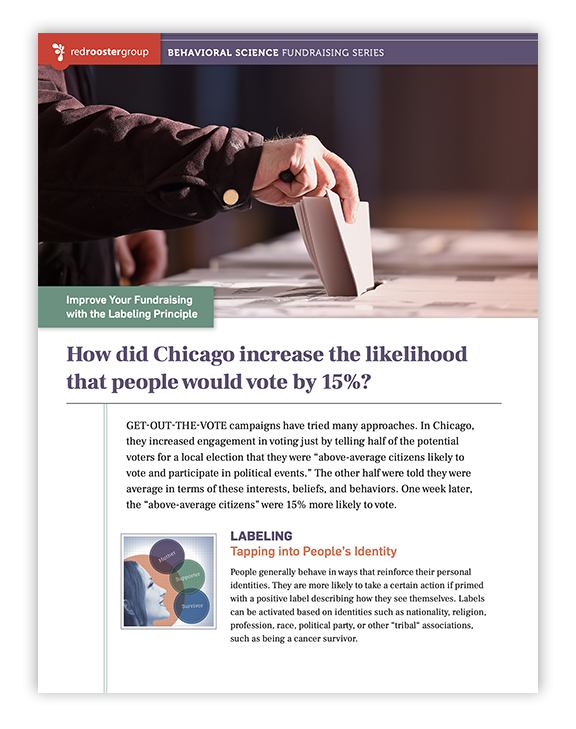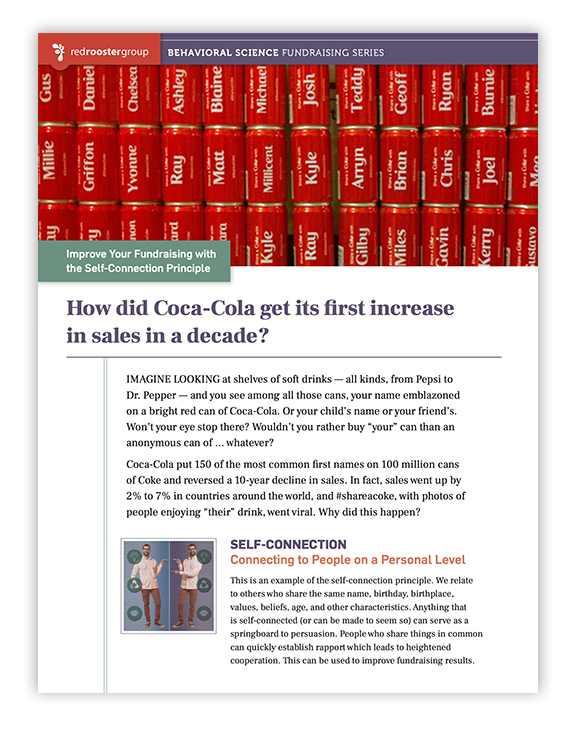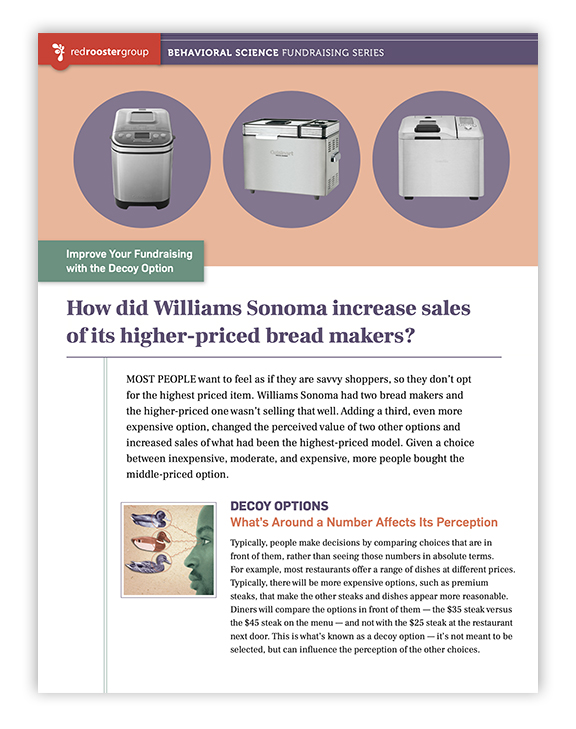Improve Your Fundraising with Behavioral Science
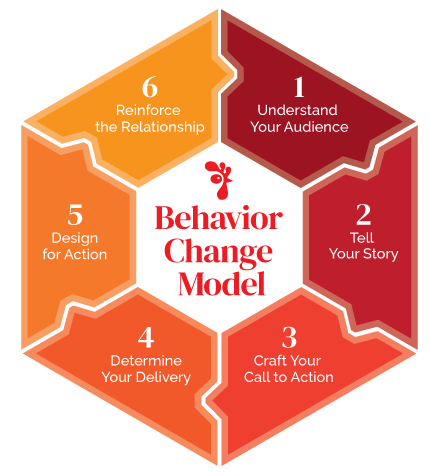
Achieve greater results when you know how to motivate people to take action. Our Behavior Change Model taps into dozens of psychological principles organized in 6 steps to help you improve your effectiveness. We use our model to help you better understand and connect with your audiences, craft compelling offers and messages that resonate with them, and deploy techniques that nudge them to act.



